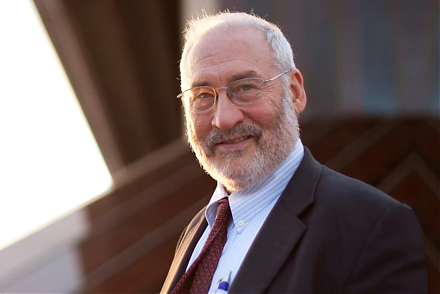

2018-04-23 07:43:00 Mon ET
technology antitrust competition bilateral trade free trade fair trade trade agreement trade surplus trade deficit multilateralism neoliberalism world trade organization regulation public utility current account compliance
Harvard professor and former IMF chief economist Kenneth Rogoff advocates that artificial intelligence helps augment human productivity growth in the next decade. A small but influential cult touts the Hungarian-American mathematician John von Neumann's singularity theory: someday smart machines will become so complex and intricate that they invent other smart machines without any human intervention.
Beyond this singularity point, technology advances exponentially.
An key existential battle between man and machine leads us to expect a significant increase in productivity growth. Most social angst over artificial intelligence focuses on economic inequality and the future of work. The government should encourage greater female laborforce participation, pay equity, and high-skill immigration when workforce growth and natural birth decline sharply. Global capital investment slows down in the multi-year aftermath of the global financial crisis from 2008 to 2009. In fact, low interest rates worldwide reinvigorate business investments in machinery, capital equipment, and artificial intelligence. Probable pickup in productivity growth can arise from smart and productive uses of artificial intelligence. This pickup can be a core catalyst for change and so creates incentives for financial intermediaries and firms to introduce technological advances. This virtuous circle can offset some slowdown in workforce participation.
If any of our AYA Analytica financial health memos (FHM), blog posts, ebooks, newsletters, and notifications etc, or any other form of online content curation, involves potential copyright concerns, please feel free to contact us at service@ayafintech.network so that we can remove relevant content in response to any such request within a reasonable time frame.
2018-03-07 07:34:00 Wednesday ET

President Trump tweets his key decision to oust State Secretary Rex Tillerson after several months of intense disagreement over diplomatic affairs. Trump so
2017-10-03 18:39:00 Tuesday ET

President Trump has nominated Jerome Powell to run the Federal Reserve once Fed Chair Janet Yellen's current term expires in February 2018. Trump's
2023-07-21 10:30:00 Friday ET

Joseph Stiglitz and Andrew Charlton suggest that free trade helps promote better economic development worldwide. Joseph Stiglitz and Andrew Charlton (200
2018-01-07 09:33:00 Sunday ET

Zuckerberg announces his major changes in Facebook's newsfeed algorithm and user authentication. Facebook now has to change the newsfeed filter to prior
2025-04-30 08:27:00 Wednesday ET

The multiple layers of the world cloud Internet help expand what can be made digitally viable from electric vehicles (EV) and virtual reality (VR) headsets
2020-09-11 10:22:00 Friday ET

AYA fintech network platform provides proprietary alpha stock signals and personal finance tools. In recent times, we have completed our fresh website up